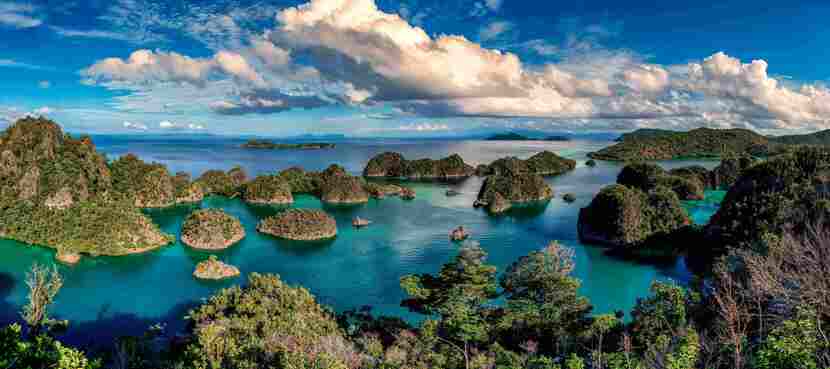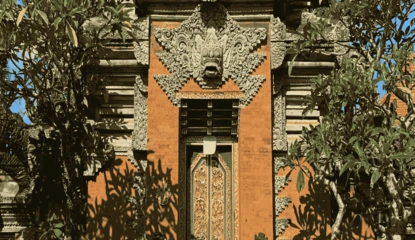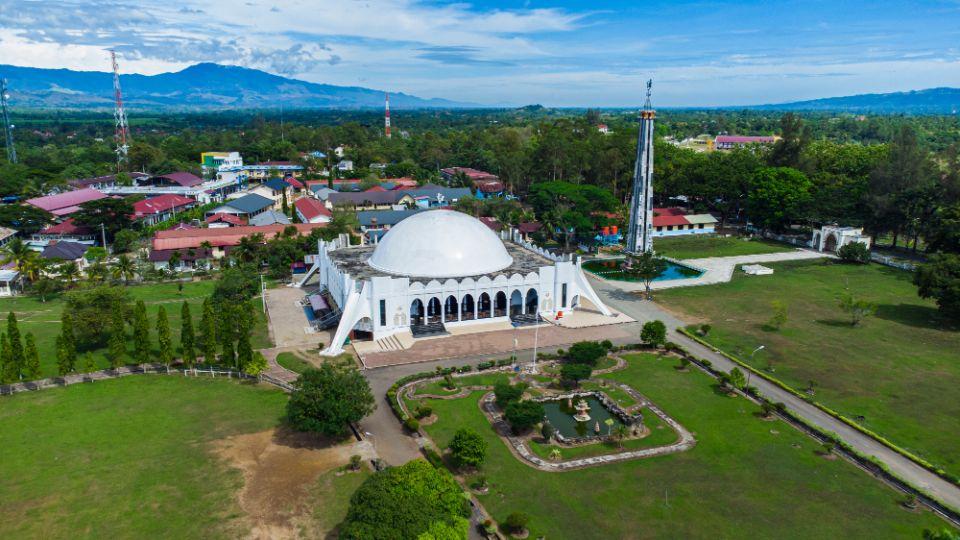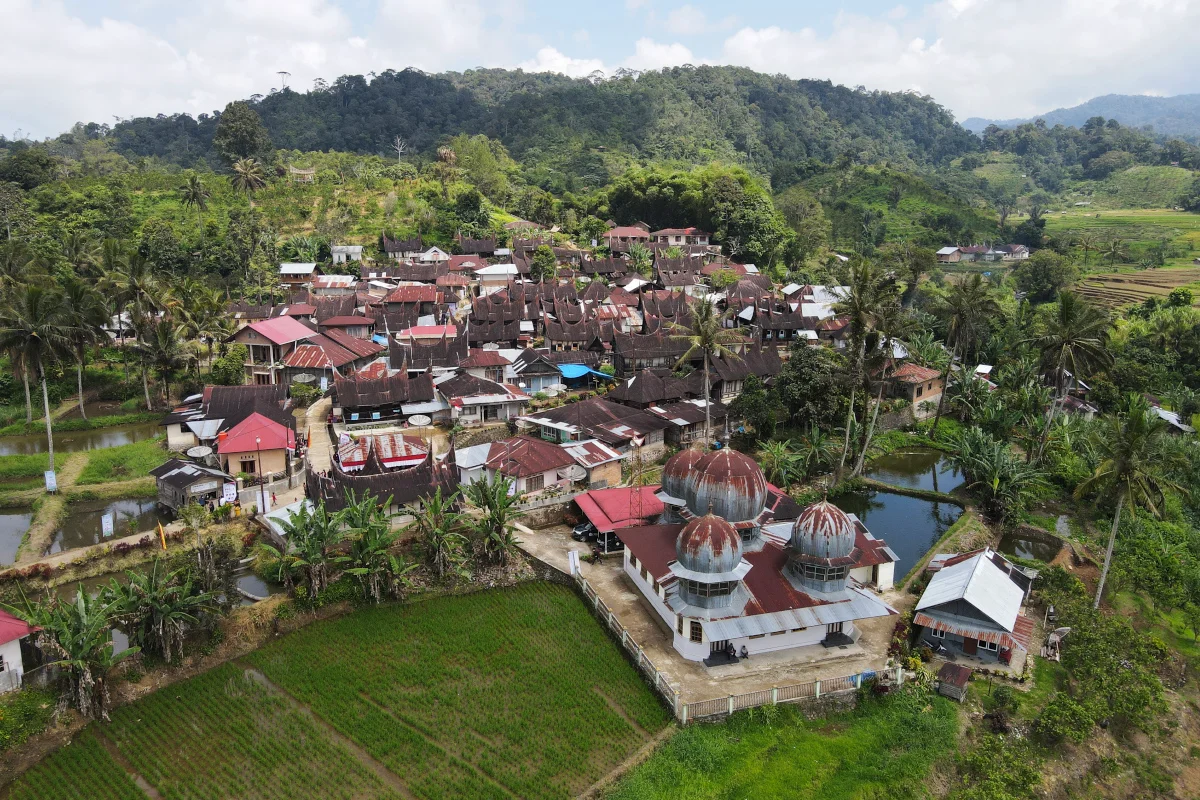Aceh Province, located in the northernmost region of Sumatra, Indonesia, is often referred to as the "Veranda of Mecca" (Serambi Mekkah) due to its pivotal role in the spread of Islam in Southeast Asia. With its rich cultural heritage and tumultuous history, Aceh has been a center of trade, religion, resistance, and resilience for centuries.
Pre-Islamic Aceh
Before the arrival of Islam, Aceh was already a crucial trading hub, as it was strategically located along the Strait of Malacca, one of the busiest maritime routes in the world. As early as the 1st century CE, Aceh was involved in trade with other parts of Southeast Asia, China, India, and the Middle East.
Hinduism and Buddhism heavily influenced early Acehnese culture, as evidenced by remnants of temples, statues, and inscriptions. Aceh’s proximity to other ancient kingdoms, such as Srivijaya and Majapahit, contributed to its role as a vital regional player in trade and cultural exchange.
The Arrival and Spread of Islam
Islamic influence began to reach Aceh around the 7th or 8th century through trade routes connecting the Middle East and Southeast Asia. With the advancement of Muslim traders from Persia, Gujarat (India), and Arabia, Aceh became one of the first regions in Southeast Asia to embrace Islam. By the 13th century, Islam was firmly established in the area, transforming Aceh into a significant Islamic region.
One of Aceh's earliest Islamic kingdoms was the Kingdom of Samudra Pasai, founded in the early 13th century on the northeastern coast of Sumatra. Samudra Pasai was not only a center for Islamic education and culture but also an important maritime trading kingdom. It maintained strong ties with other Muslim empires, such as the Ottoman Empire, and became a key player in spreading Islam to neighboring islands and nations, including Malaysia and the Philippines.
Through its trading connections, Aceh also facilitated the exchange of Islamic teachings, texts, and scholars, making it a prominent center for Islamic thought in the region.
The Aceh Sultanate and Its Golden Age
The 16th century marked the rise of the Aceh Sultanate, which emerged as the dominant Islamic power after the decline of the Kingdom of Samudra Pasai. Under the rule of Sultan Ali Mughayat Syah (r. 1514–1530), the Sultanate consolidated its control over much of northern Sumatra and gained power in the Strait of Malacca, challenging Portuguese and other competing powers for dominance.
During the 16th and 17th centuries, the Aceh Sultanate reached its zenith under the reign of Sultan Iskandar Muda (r. 1607–1636). Known as Aceh’s most esteemed and powerful leader, Sultan Iskandar Muda expanded the sultanate’s territorial control to include parts of the Malay Peninsula and ensured Aceh’s supremacy in the pepper trade. Aceh became one of the wealthiest and most powerful Islamic kingdoms in Southeast Asia.
The Sultanate also became known as a center of Islamic learning and culture. Scholars and poets thrived under the patronage of the sultans, contributing to Aceh’s reputation as the "Veranda of Mecca.” Many pilgrims from Southeast Asia would begin their journey to Mecca by stopping in Aceh, where they would study Islam and prepare for the Hajj pilgrimage.
However, the Sultanate began to decline after the death of Sultan Iskandar Muda. Internal conflicts, along with external pressures from European colonial powers such as the Dutch and the Portuguese, weakened Aceh's influence.
Colonial Struggles: The Aceh War
In the 19th century, Aceh faced significant challenges as European powers expanded their colonial interests in Indonesia. The Dutch East India Company (VOC) had been established in the Indonesian archipelago in the 17th century, and by the 19th century, the Dutch sought to consolidate their authority over Aceh, seeing its strategic location and resources as crucial.
The Anglo-Dutch Treaty of 1824 granted the Dutch influence over Aceh in exchange for relinquishing claims in Malaya to the British. However, Aceh resisted Dutch control fiercely, leading to the Aceh War (1873–1904), one of the longest and most costly colonial conflicts in Indonesian history.
The Acehnese people, inspired by their Islamic faith and cultural identity, waged relentless guerrilla resistance against the Dutch. The war saw the involvement of influential religious leaders, known as Ulama, who rallied the people to fight in defense of Islam and their homeland. Despite the Dutch deploying superior numbers and firepower, Acehnese fighters consistently resisted, making Aceh a symbol of resilience and defiance against colonialism.
Although the Dutch claimed victory in 1904, Aceh’s resistance persisted well into the early 20th century, forcing the Dutch to maintain a large military presence in the region.
Aceh in the Modern Era
After Indonesia achieved independence in 1949, Aceh remained an important province within the new republic. However, dissatisfaction with centralized governance in Jakarta led to tensions between Aceh and the Indonesian government. Acehnese leaders felt that their unique Islamic identity, culture, and autonomy were being overlooked.
In the late 20th century, a separatist movement known as the Free Aceh Movement (GAM) emerged in 1976, seeking independence for Aceh. The conflict between GAM and the Indonesian military lasted for decades, resulting in significant loss of life and damage to the region.
The most critical turning point in Aceh’s modern history came in 2004, when a massive tsunami, triggered by a 9.1-magnitude earthquake in the Indian Ocean, devastated the province. Over 170,000 Acehnese lost their lives, and infrastructure was destroyed on an unprecedented scale.
In the aftermath of the disaster, the tragedy brought international attention and spurred efforts to resolve Aceh’s long-running conflict. In 2005, the Helsinki Accord was signed, granting Aceh special autonomy within Indonesia. The agreement allowed Aceh to implement Sharia law, maintain greater control over its resources, and elect its regional leaders.
Aceh’s Identity Today
Today, Aceh is a region celebrated for its Islamic heritage, rich culture, and natural beauty. Its history of resilience, from its days as an Islamic maritime kingdom to its role in resisting imperialism and modern challenges, defines Acehnese identity.
Aceh has retained its unique position within Indonesia. Under its special autonomy status, it adheres to Sharia law, making it distinct from other provinces. The province has also made significant strides in recovering from the devastation of the 2004 tsunami, rebuilding its infrastructure and focusing on sustainable economic development, particularly in agriculture, fishing, and tourism.
Modern Aceh continues to honor its history as the "Veranda of Mecca" and a region that has played a central role in the religious, cultural, and political life of Southeast Asia.









